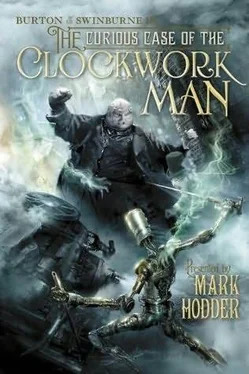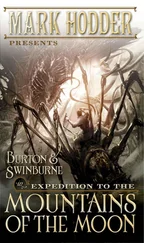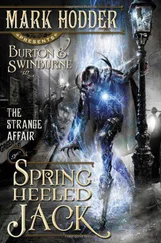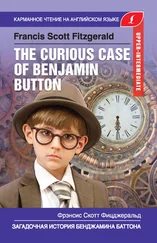Mark Hodder - The curious case of the Clockwork Man
Здесь есть возможность читать онлайн «Mark Hodder - The curious case of the Clockwork Man» весь текст электронной книги совершенно бесплатно (целиком полную версию без сокращений). В некоторых случаях можно слушать аудио, скачать через торрент в формате fb2 и присутствует краткое содержание. Жанр: Детективная фантастика, на английском языке. Описание произведения, (предисловие) а так же отзывы посетителей доступны на портале библиотеки ЛибКат.
- Название:The curious case of the Clockwork Man
- Автор:
- Жанр:
- Год:неизвестен
- ISBN:нет данных
- Рейтинг книги:3 / 5. Голосов: 1
-
Избранное:Добавить в избранное
- Отзывы:
-
Ваша оценка:
- 60
- 1
- 2
- 3
- 4
- 5
The curious case of the Clockwork Man: краткое содержание, описание и аннотация
Предлагаем к чтению аннотацию, описание, краткое содержание или предисловие (зависит от того, что написал сам автор книги «The curious case of the Clockwork Man»). Если вы не нашли необходимую информацию о книге — напишите в комментариях, мы постараемся отыскать её.
The curious case of the Clockwork Man — читать онлайн бесплатно полную книгу (весь текст) целиком
Ниже представлен текст книги, разбитый по страницам. Система сохранения места последней прочитанной страницы, позволяет с удобством читать онлайн бесплатно книгу «The curious case of the Clockwork Man», без необходимости каждый раз заново искать на чём Вы остановились. Поставьте закладку, и сможете в любой момент перейти на страницу, на которой закончили чтение.
Интервал:
Закладка:
Burton looked at Trounce. “Some sort of gas?” he suggested. “Causing hallucinations?”
“That was my thought,” the detective replied. “But we checked every inch of the floors, walls, and ceilings and found no residue and no indication of how gas might have been introduced. Certainly it didn't come up from the cellar. The tunnel from the underground river wasn't dug until hours later.”
There was a long pause, then Burton said: “I apologise for imposing upon you, Mr. Brundleweed. Thank you for the tea and biscuits. I hope the diamonds are recovered.”
“I suppose they'll surface eventually, Captain.”
“And when they do,” Trounce offered, “I'll hear about it!”
The men stood, exchanged handshakes, and Burton and Trounce took their leave.
“What next?” the detective asked as they stepped out onto the street.
“Well, Trounce old chap, this has piqued my curiosity, so I think I'm going to bury my head in books for the rest of the day to see what more I can dig up about the Naga, then on Wednesday I shall take my rotorchair out for a spin.”
“Where to?”
“Tichborne House. Much as I'd rather pursue this diamond affair, orders are orders, so I ought to have a chat with the soon-to-be-deposed baronet.”
Burton spent an uncomfortable afternoon at the British Library consulting Matthijs Schuyler's De Mythen van Verloren Halfedelstenen, along with a number of other books and manuscripts.
He became increasingly ill.
Malaria is like an earthquake; after the initial devastating attack, a series of lesser aftershocks follow, and one of them crept over the king's agent as he studied.
It began with difficulty focusing his right eye. Then he began to perspire. By five o'clock he was trembling and feeling nauseous.
He decided to go home to sleep it off.
Sitting in a hansom, being bumped and jerked toward Montagu Place, he considered what he'd read.
According to the occult text consulted by Schuyler, a continent named Kumari Kandam once existed in the Indian Ocean. It was home to the Naga kingdom, whose capital city spanned a great river, the Pahruli, which sprang from the spot where a black diamond had fallen from the sky.
The Naga were reptilian, and were constantly warring with the land's human inhabitants, enslaving them, sacrificing them, and, it was hinted, eating them.
However, the humans were growing in numbers, while the Naga were diminishing, so there came a time when the reptilian people had little choice but to seek a peaceful coexistence.
The humans sent an emissary, a Brahmin named Kaundinya, and as a symbol of the peace accord, he was married to the Naga monarch's daughter.
However, Kaundinya was not just an ambassador, he was also a spy. He discovered that while the Naga were a multitude, they were also one, for their minds were joined together through means of the black diamond.
After a year living with the reptilian race, during which time he convincingly acted the loving husband, Kaundinya was granted the right to add his own presence to the great fusion of minds.
He was taken before the gemstone, and watched without protest as a human slave was sacrificed to it. Then, with great ritual, pomp, and ceremony, he was sent into a trance and his mind was projected into the stone.
What a mind he possessed!
Trained since early childhood, Brahmin Kaundinya had achieved the absolute pinnacle of intellectual order and emotional discipline. For a year, the Naga had been covertly projecting their thoughts into his, and for a year, despite feeling them crawling around inside his skull, he'd appeared to be nothing but a simple goodwill ambassador when, in truth, he was a living weapon-and their nemesis.
As his awareness sank into the crystalline structure of the stone, Kaundinya was able to position some aspect of himself in its every angle, every line, and every facet. He filled it until no part of it was free from his consciousness. Then he turned inward, delved into the depths of his own brain, and purposely burst a major blood vessel.
The massive haemorrhage killed him instantly, as he'd known it would, and, because he'd infiltrated the entire stone, his death caused it to shatter, tearing apart the minds of every single Naga on the continent of Kumari Kandam.
It was genocide.
Many generations later, the land itself was destroyed when the Earth gave one of its occasional cataclysmic shrugs.
Now, in 1862, little evidence remained of the prehistoric lizard race. They were depicted in carvings in a few Cambodian temples, such as Angkor Wat, but whether these representations were accurate could never be established.
What fascinated Sir Richard Francis Burton, though, was that this myth of a lost reptilian civilisation existed not only in Cambodia but also in South America, where the lizard men-known as Cherufe -were also overthrown by the expanding human race. Their kingdom had been invaded, there had been mass slaughter, and just a few of them had escaped. This small group, carrying their sacred black diamond, had been pursued almost the entire length of the continent, far south to Chile, where they had vanished and were never heard of again.
In Africa, too, there were the Chitahuri of the Zulus, called the Shayturay by the tribes in the central Lake Regions.
It was, of course, surplus information that didn't, as far as he could see, have much bearing on the unsolved theft of the Francois Garnier Collection, but Burton possessed a self-confessed “mania for discovery” which drove him to peel away layer after layer of whatever subject he studied. It at least enabled him to establish a wider and, to him, more interesting context.
There was one more thing.
The Cambodian fragments had been discovered in 1837, when a priest became aware of a low humming while meditating in his quarters. He'd lived in that room for forty-seven years and had never heard the low musical tone before. He traced it to the base of a wall, and a loose brick. The five diamonds were behind it.
1837.
It was to that year Edward Oxford, the man from the far future, had been thrown after his arrival in 1840, where he'd accidentally caused the assassination of Queen Victoria.
A coincidence, surely.
At around six o'clock, Burton got home and was hanging up his hat and coat when Mrs. Angell came down the stairs, looked at him askance, and said: “There's a nasty sheen on your brow, Sir Richard. A relapse?”
“It seems so,” he replied. “I just need to sleep it off. I'll take a dose of quinine and work on my books awhile.”
“You'll take a dose of quinine and go straight to bed!” she corrected.
He didn't have the strength to argue.
Ten minutes later, she brought him up a jug of water and a cup of tea.
He was already asleep.
His afternoon of study invaded his dreams.
He became aware of a fierce light, which burned through his eyelids. He opened them expecting to see firelight flickering on a canvas roof. Instead, he squinted up at a blazing blue desert sky.
Turning his head, he found that he was on his back, with limbs spread out, and wrists and ankles bound with cord to wooden stakes, which were driven deeply into the ground.
Dunes rose up on either side of him. From beyond them came the sound of voices, arguing in one of the languages of the Arabian Peninsula. He couldn't make out the words but one of the voices belonged to a woman.
He opened his mouth to shout for help but only a croak came out. His throat was dry and his skin was burning. The sun had sucked every particle of moisture from the air.
Grains of sand, riding a hot, slow breeze, blew against the side of his face.
He couldn't move.
Something nudged his left hand. He looked. There was a fairy standing by his wrist; a tiny female figure with transparent butterfly wings fluttering from her shoulder blades. She had a colourful mark painted on her forehead-like a bindi, though designed to more resemble an actual third eye.
Читать дальшеИнтервал:
Закладка:
Похожие книги на «The curious case of the Clockwork Man»
Представляем Вашему вниманию похожие книги на «The curious case of the Clockwork Man» списком для выбора. Мы отобрали схожую по названию и смыслу литературу в надежде предоставить читателям больше вариантов отыскать новые, интересные, ещё непрочитанные произведения.
Обсуждение, отзывы о книге «The curious case of the Clockwork Man» и просто собственные мнения читателей. Оставьте ваши комментарии, напишите, что Вы думаете о произведении, его смысле или главных героях. Укажите что конкретно понравилось, а что нет, и почему Вы так считаете.












